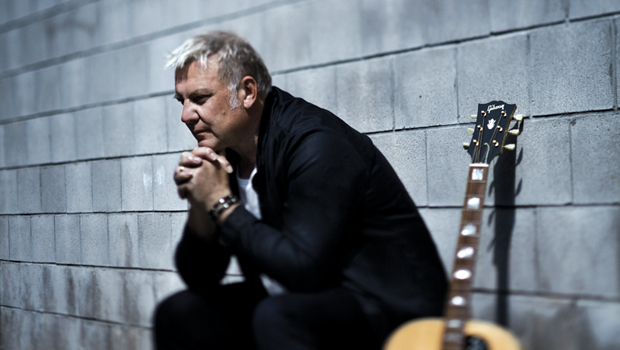Excerpt: Rush Guitarist Alex Lifeson Discusses 'Clockwork Angels'
All the latest guitar news, interviews, lessons, reviews, deals and more, direct to your inbox!
You are now subscribed
Your newsletter sign-up was successful

The following in an excerpt taken from the September 2012 issue of Guitar World. For the full story, as well as features on Steve Vai and Tosin Abasi, Meshuggah, Periphery and more, pick up the issue on newsstands now, or in our online store.
You’re understandably very happy with the album, but at what point did you know that you had nailed it? Did you have to let it all sink in?
ALEX LIFESON: You know, it’s a funny thing. You’re so focused on a record the whole time you’re making it. The writing, the recording, the horror of mixing—you’re constantly second-guessing yourself. It can drive you crazy; you’re under the microscope so much. So when it’s all finished, after it’s mastered and everything is ready, it’s important to step away from it for a month or so and then listen to it. That’s what I did, and it allowed me to be very much at peace. Then I was very happy with it.
Clockwork Angels is an album that’s meant to be experienced in full. This flies in the face of the music business in 2012, where the emphasis is on singles.
People are getting away from the whole album experience, it’s true. I think that’s sad. Maybe I’m just saying that because I’m an old fart. [laughs] But I can’t help it—albums are what I grew up with, and I still love them.
And on top of everything, this is a concept album.
Well, you see, we’ve always been a little contrarian, I think. It is a concept record. We haven’t done something like this in a while. All of our albums are thematic, but this is a little more direct. I think the songs stand on their own, though. I can listen to them independent of the story, but when I hear everything from front to back, it really makes sense to me. The songs are linked by some really nice musical moments, which makes it very cinematic. So it works on lot of levels.
All the latest guitar news, interviews, lessons, reviews, deals and more, direct to your inbox!
- Before we started doing any recording, we sort of committed ourselves to doing a concept piece, and that part of it really was up to Neil. For Ged and me, we were going to do our music anyway. Neil had to start thinking a certain way, dedicating himself to a concept and jumping into it.
- We got lyrics very early on before the last tour. We had five songs written, at which point Neil had an idea of what the concept would be. What happened was, when we went into the studio to record “Caravan” and “B2UB” to take on the road with us, it gave Neil some time to formulate the story and get it into his head. By the time we got back into writing, he redid a lot of the lyrics and changed the direction of the story. It evolved over a period of time. And then, of course, when we attacked the new music, we went into a different direction ourselves.
It was pretty cool. We’ve never done something like that, spreading everything out over a long period of time. I kind of like the idea of releasing singles in terms of going into the studio guerilla-like, putting them out, going on the road with them. You’re constantly updating the songs.
Going back to the whole “singles versus albums” thing, bands used to do that all the time in the Sixties. The Beatles, the Stones, the Who and so on—there would be singles between albums, sometimes two 45s before a full-length.
Yeah, exactly! The album was the convenient package for all those singles, where you could get them all at once.
For the full story on Rush's highly acclaimed new concept record, pick up the September 2012 issue of Guitar World now in our online store.
